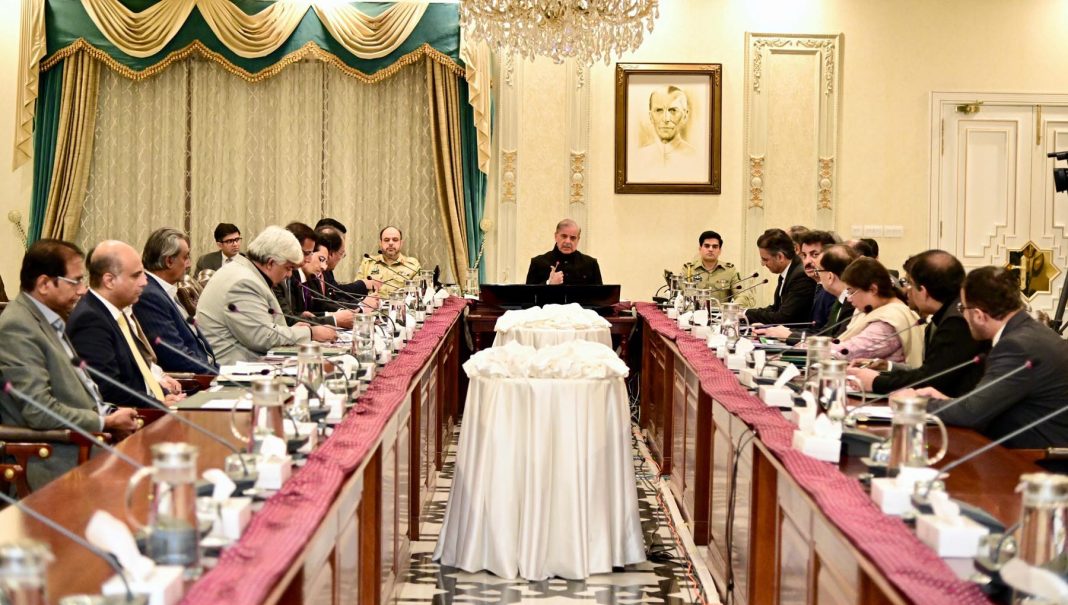
Staff Report
ISLAMABAD: Prime Minister Shehbaz Sharif has called for the implementation of strict measures to combat petrol smuggling in the country.
The prime minister was chairing the review meeting to assess the country’s economic situation and the digitisation of the Federal Board of Revenue (FBR), media reported.
During the meeting, the prime minister stated that due to the crackdown on smuggled fuel and the significant reduction in petrol and diesel prices, petroleum sales in Pakistan reached their highest level in 25 months in November 2024, at 1.58 million tonnes, which is a highly positive development.
The Prime Minister directed further strict measures against petrol smuggling, adding that the sales of petroleum products in Pakistan had increased by 15% year-on-year, indicating a recovery in the energy market.
He also instructed the quick completion of the video analytics installation in the cement industry.
On this occasion, PM Shehbaz Sharif noted that the FBR’s digitisation is a key milestone in the government’s economic reforms, and its positive effects have already begun to show.
The premier further stated that the results of good policies and timely decisions are starting to materialise, which will prove beneficial for the country’s economy.
A day earlier, Federal Minister for Petroleum Musadik Malik denied any agreement with Russia for the purchase of crude oil, dismissing media reports claiming otherwise.
Speaking to journalists in Islamabad, the minister clarified that no deal has been finalised for crude oil procurement from Russia, adding that while earlier efforts aimed to purchase oil through a public sector company, the initiative did not materialise after the first shipment. Discussions with Russia regarding crude oil imports remain ongoing, the minister shared.
However, no new cargo agreements beyond previous arrangements have been signed. He revealed that Pakistan Refinery Limited (PRL) did not order additional oil from Russia following the initial cargo.
“Russia has shown interest in offshore oil and gas exploration in Pakistan. Any new agreement for crude oil procurement will be made keeping national interest in mind,” he said.
Explaining complications in Russian oil transactions, Malik said the previous deal involved a Chinese bank and included shipping insurance and reinsurance. Due to port limitations, the first shipment was split into smaller cargoes in Oman.
While local refineries and oil marketing companies complain about falling capacity utilisation and sales, around 10 million litres of Iranian petrol and diesel are smuggled into Pakistan every day through land and sea routes, causing a more than Rs227 billion annual revenue loss.
It was revealed in a joint report by intelligence agencies to the Petroleum Division. Sources said the report entailed complete identities, addresses and contact numbers of 100 black sheep in around a dozen law enforcement agencies (LEAs), owners and operators of 533 illegal petrol stations across the country and 105 smugglers of Iranian oil.
The report also contains precise information about informal border crossings and routes for trafficking smuggled items throughout Pakistan.





